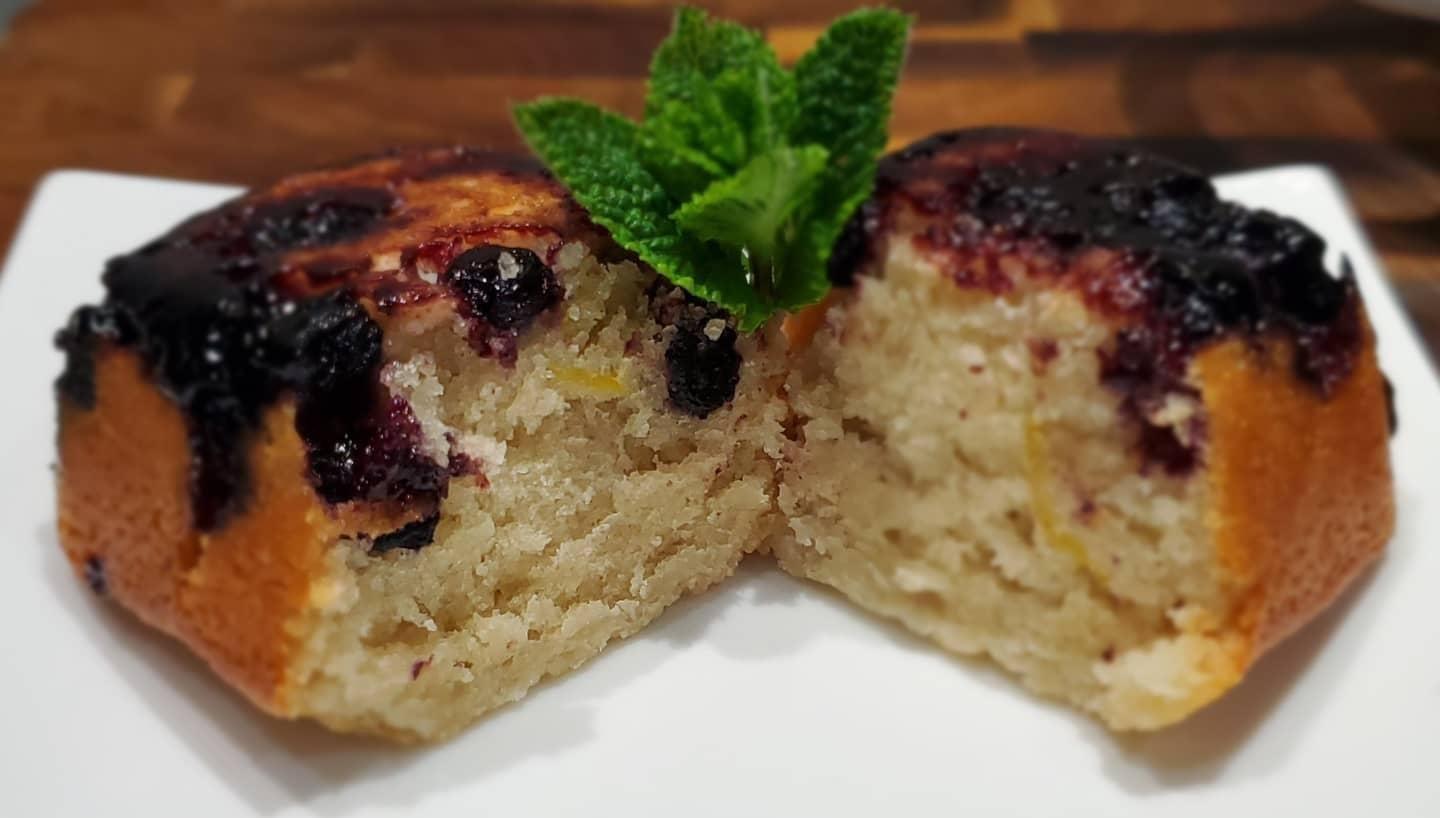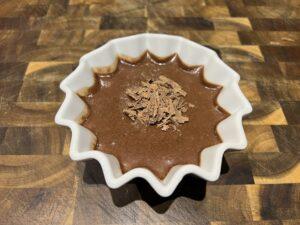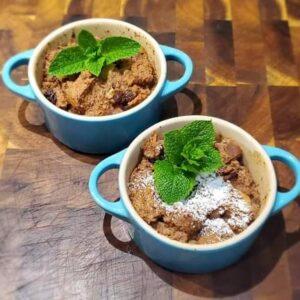Plant-based egg substitutes for meal preparation and baking

Vegan Kitchen Chronicles


What really came first, the chicken or the egg? In the world of plant-based meals, it doesn’t even matter. What does matter, is finding a suitable substitute to meet the needs of whatever meals you are preparing that requires the use of eggs!
Eggs have been consumed by humans for about six million years and historic evidence shows that ancient Egyptians and Romans used eggs in the preparation of breads and cakes. This practice lives on today, as eggs are a staple ingredient in making cakes, breads, donuts, biscuits, and a host of baked products and sweet treats.
In the world of cooking, eggs have several different functions. Specifically, when it comes to baking, eggs add to the colour, flavour profile and consistency of baked goods. They also act as a binding agent, which helps to combine and hold ingredients together, giving foods their structure. Eggs are also used as a leavening agent, which helps foods, such as cakes and meringues, to rise and expand during heating adds moisture, giving many baked goods the familiar golden-brown appearance.
Depending on what’s being prepared, there is a long list of egg substitutes. Let’s discuss a few of the plant-based options available and then you can choose what suites your needs best.
Apple sauce is a puree of cooked apples often sweetened with sugar and spiced with cinnamon and nutmeg. Apple sauce used as an egg substitute is best when unsweetened and for baking. It will add moisture and help to bind ingredients together. Its mild flavour does not interfere with the overall flavour of the meal being prepared – a quarter cup of apple sauce is used to replace one egg.
Mashed banana is another egg substitute that functions in a similar manner to apple sauce but the banana flavour is a bit stronger and will influence the flavour of the meal being prepared. Additionally, the baked product may not be as golden-brown and will be denser than egg-containing equivalent. A quarter cup of mashed banana is equivalent to one egg.
Pumpkin puree is another excellent plant-based egg substitute and works best when used in cakes, muffins and quick breads and has the advantage of not disrupting the flavour of the baked products it is used in. A quarter cup of pumpkin puree replaces one egg.
Ground flaxseed and chia seeds, when mixed with water and left to thicken, has a consistency that is very close to real eggs. Both seeds have a high nutrition content and are rich in omega-3 fatty acids and fiber. The binding properties of flax seed and chia seeds make them most suitable to be used in making cookies, cakes, and most sweet treats. Because the use of fax seed or chia seed won’t add a rise in the same way that real eggs do, more baking powder may be needed. One tablespoon of grounded flax seed or chia seed mixed with three tablespoons of water and left to thicken for a minimum of five minutes is equivalent to one egg.
Silken tofu, which is processed soy milk made into solid blocks, is another plant-based replacement for eggs. It has a higher water content and softer consistency than firmer tofu options. It has a neutral flavour and is utilized best in baked goods that are typically dense and heavy. So, brownies and cookies are the best candidates. When used, the silken tofu needs to be whipped until smooth to prevent chunks in the end baked products. Substitute a quarter cup of pureed silken tofu with extra baking powder or baking soda, to help give a rise, for one egg.
Dairy free yogurts provide an excellent egg substitute, especially if the goal is to add moisture to baked products. Typically, yogurts are neutral in flavour, assist in binding ingredients together and tend to give baked goods a rich texture. Yogurts work best in cakes and muffins. However, additional cook/bake time is needed to ensure that the mixture is cooked all the way through, when used. A quarter cup of dairy free yogurt replaces one egg.
Arrowroot powder is another candidate for a plant-based egg substitute. Arrowroot is a tuber plant found in South America that has a very high starch content. This starch, when extracted, is known as arrowroot powder. A mixture of two tablespoons of arrowroot powder and three tablespoons of water is the equivalent to one egg.
Aquafaba is the terminology used to describe the leftover liquid from canned chickpeas. Its consistency is very similar to egg white, making it an excellent egg white substitute. It has exceptional binding properties and what makes this egg substitute even more appealing is the fact that when whipped, it acts like egg whites, creating foams. Aquafaba works best for recipes that calls for egg whites such as meringues, marshmallows and macaroons, and any baked goods where the desired texture is to be light, fluffy, and crumby. Of course, a stabilizer such as sugar, or cream of tartar will be required for lasting foam peaks, when whipped. Three tablespoons of aquafaba liquid provides the equivalent of one egg.
Apple cider vinegar and baking soda represent a good egg substitute, especially when used in recipes that require eggs to act as a rising agent. When combined, the two initiate an acid-base reaction that results in the formation of carbon dioxide and water. It is this reaction that provides a light airy texture to cakes and muffins when used as an egg substitute. One teaspoon of baking soda mixed with one tablespoon of apple cider is equivalent to one egg.
In the world of plant-based everything, there are so many egg substitutes that can be used to enhance the taste and texture of your dishes. What you choose will depend on your desired outcome.
Try this simple egg free recipe for the most delectable pancake you will ever have! It is one of my family’s favourites! Happy cooking!
Fluffy Vegan Pancakes: INGREDIENTS – 2 cups unbleached flour; 1/4 cup brown sugar; 4 1/4 teaspoons baking powder; 1/4 teaspoon baking soda; 1/2 teaspoon salt; 1 3/4 cups almond milk; 1/4 cup plant butter, melted;2 teaspoons pure vanilla extract; 1 flax egg.
METHOD: In a large mixing bowl, combine the flour, sugar, baking powder, baking soda and salt. Make a well in the center. Whisk the wet ingredients (almond milk, slightly cooled melted butter, vanilla, and flax egg) and add to the center of the well. Slowly fold in the dry ingredients until mixture is smooth. (The batter will be thick and creamy in consistency with some lumps). Adjust the consistency of the mixture by folding in 1-2 tablespoons of extra almond milk into the batter little at a time, if the batter is too thick, i.e., it doesn’t pour off the ladle or out of the measuring cup smoothly. Set the batter aside and allow it to rest while heating up your pan or griddle. Heat a heavy bottom skillet or griddle over low-medium heat and wipe over with a little butter to lightly grease pan. Pour A quarter cup of batter onto the pan and spread out gently into a round shape with the back of the ladle or measuring cup.
When the underside is golden and bubbles begin to appear on the surface, flip with a spatula and cook until golden. Repeat with remaining batter until batter is all used up. Serve with your favorite pancake topping and enjoy! Makes 10-12 pancakes.
Dr. Jerainne Johnson-Heywood is a Physical Chemist, home chef, culinary influencer, and a food enthusiast, focused on creating plant-based cuisines! Her culinary brand is The Uncomplicated Palate.






